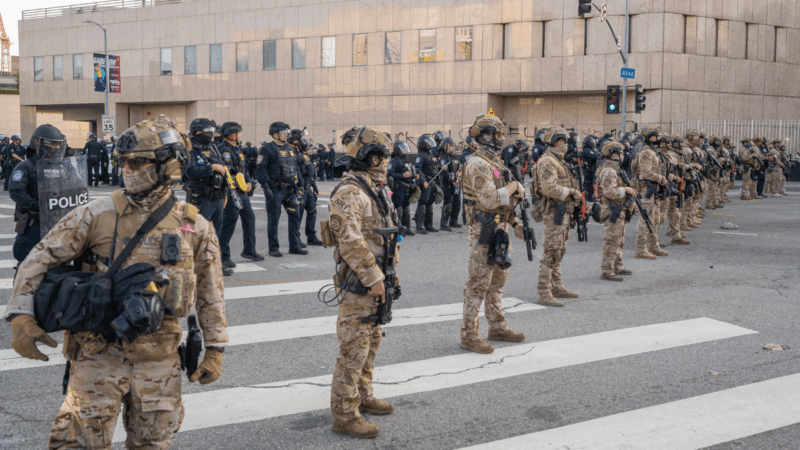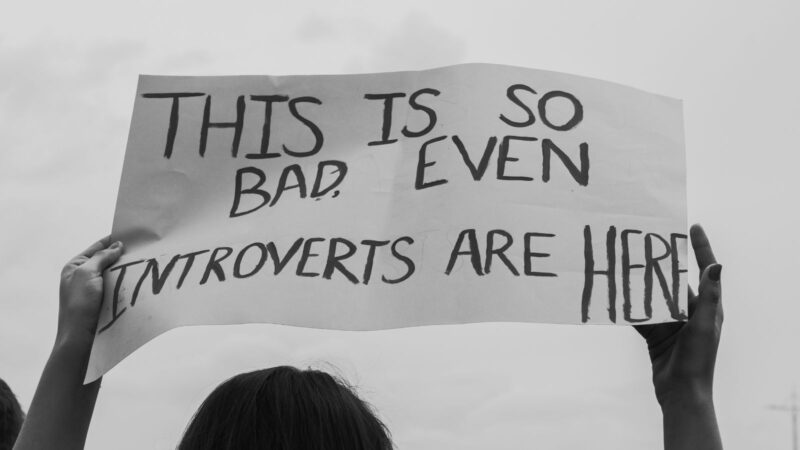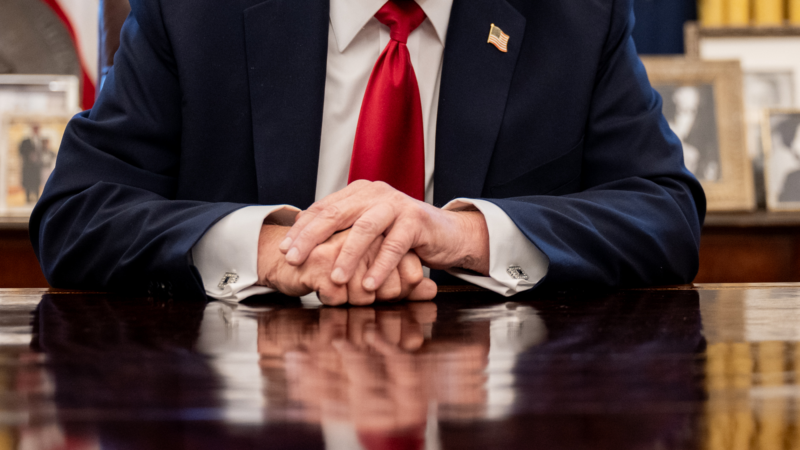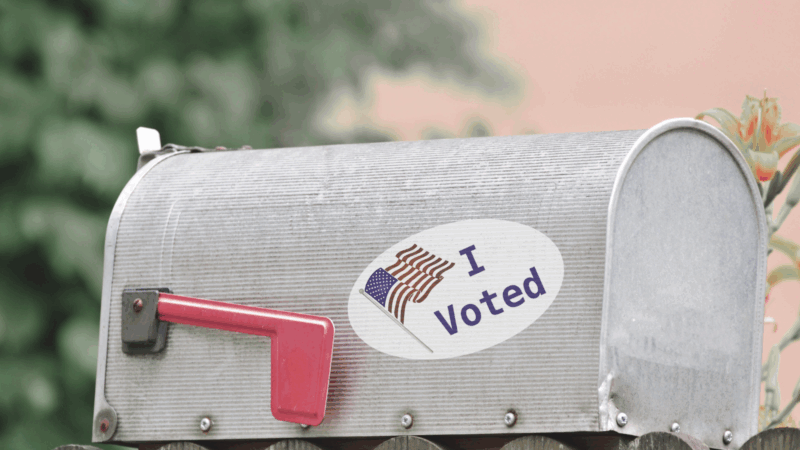How to Secure American Democracy
- September 15, 2021
This essay is part of Protect Democracy’s Democracy Endgame series, in which leading thinkers were invited to offer their own views on possible paths out of the United States’ democratic crisis. This essay reflects solely the viewpoint of its author and not of his affiliated institutions or of Protect Democracy.
Any strategy to repair and secure America’s teetering democracy must begin with a clear analysis of the causes of our predicament. At the surface, I suggest two: a level of partisan political polarization not seen in more than a century and a serious erosion in public commitment to democratic values and norms. Beneath these are the familiar social and economic drivers: steeply rising social and economic inequality, to levels that should be considered morally intolerable; the intense pace of globalization, with its relentless displacement of manufacturing jobs and continuing flows of immigration from diverse parts of the globe; partly as a result, the increasing racial diversity of the United States, with the foreseeable prospect of its becoming a majority-minority country; the growing cultural gulf between racially diverse urban, professional, and coastal populations and predominantly white, culturally conservative, more religious heartland and southern populations; and the corrosive impact of social media on truth, trust, tolerance, and mutually respectful discourse.
Only rarely in our history has American democracy confronted such a formidable combination of challenges to the survival of our Constitutional experiment. Managing these threats will require carefully conceived and energetically mobilized campaigns with three aims: to defend and reform elections, to empower democratic majorities, and to build a broad pro-democracy political coalition.
Defending Democratic Norms and Processes
The most crucial imperative in the short term is to defend the integrity of the electoral process against partisan – Trump Republican – efforts to capture control of electoral administration and certification. These functions should not rest with partisan actors—not with state legislatures and not even with elected secretaries of state, who in most states run as partisan candidates. Rather, they should be entrusted—at the state, country, and local levels—to career non-partisan officials. The problem today is that Trump’s loyal followers have identified these vulnerable stress points in the system of organizing elections, and they are going after them. We need a broad national coalition—including diverse leaders of business, labor, and civic institutions—to defend impartial electoral administration as a foundational principle of our democracy.
Next in urgency is fighting Trump Republican efforts to make it more difficult for people to register and vote. Where state legislatures are pursuing these initiatives, the efforts clearly have the effect and the apparent intent of targeting racial minorities, poor people, and other Democratic constituencies. In a democracy, voting rights should never be sacrificed—however partially—on the altar of partisan advantage, which is why we so urgently need the John Lewis Voting Rights Act. The “For the People Act” (HR1/S1) would move more ambitiously not only to defend and extend voting rights but also to modernize voter registration, eliminate partisan gerrymandering, and reduce the disproportionate influence of big money in politics—all immensely worthy goals. My one reservation is that the bill’s provision for a six-to-one match of small donations may favor more militant primary candidates who motivate large numbers of fervent followers to make these small donations, further polarizing our political system.
The most promising strategy in the near term to reduce partisan polarization—one that could be, and is being, adopted at state and municipal levels—is to shift current plurality elections to Ranked Choice Voting (RCV), as Maine, Alaska, and New York City have recently done. We need a national state-by-state campaign to win the adoption of RCV. Congress should pass the Voter Choice Act, sponsored by Senators Michael Bennet and Angus King and Representative Dean Phillips, which provides $40 million in funding to help state and local governments change over to RCV.
In partisan primaries, RCV would attenuate polarization by requiring nominees to win a majority of the vote in order to be nominated, making it more difficult for politically extreme candidates to win by simply mobilizing their parties’ most militant voters. For similar reasons, RCV favors more moderate candidates in general elections, while also giving voters more choice and control and, since no votes are “wasted,” allowing a third party or an independent a greater chance in the contest: If a voter’s first choice doesn’t win outright and no one wins a majority of first-preference votes, the first-choice vote is transferred to the voter’s next choice. Particularly intriguing is the “Top Four” system adopted by Alaska voters in November, 2020. Beginning in 2022, Alaska will hold a single “blanket” primary – advancing the top four finishers to the general election, in which RCV determines the winner. This system will make it much more difficult for a party’s extreme wing to defeat a broadly appealing moderate – like incumbent Senator Lisa Murkowski: The Alaska reform appears to have emboldened her in her moderation. Some reformers favor a “Top Five” final round to further enlarge the circle of competition.
Other reforms are needed to make American democracy fairer—that is, more reflective of the wishes of the majority rather than the minority. There is very little prospect of Constitutional amendments in the next decade or two to address major defects – for example, by eliminating the Electoral College and reducing the disproportionate power of small states in the U.S. Senate. But we should push for legislative solutions wherever possible. An innovative approach that would probably survive a Supreme Court challenge, a National Popular Vote Interstate Compact, would award the presidency to the winner of the national popular vote by requiring states that pass the enabling legislation to award their electoral votes to the candidate with the most votes nationwide, no matter who wins the most votes in each individual state. But the compact can take effect only when states that make up a majority of the Electoral College (at least 270 votes) have passed the legislation; at the moment, the movement is 95 electoral votes short. A simpler reform would make the Senate more representative by granting statehood to the District of Columbia and Puerto Rico. National legislation could also make the House more diverse (and congressional delegations more representative of the partisan balance in each state) by dividing medium-sized and large states into multi-seat districts of three to five members each. After this division, the reformed system would use proportional representation, administered through RCV, to choose winners in the new multi-seat districts, as provided in the Fair Representation Act. By creating bigger, more diverse congressional districts, the new system would also render gerrymandering largely irrelevant.
Breaking the Cycle of Dysfunction
Yet, the forces tearing the country apart are such a potent mix that they cannot be relieved by institutional political reforms alone. Unless the United States addresses the social, economic, and cultural drivers of these forces, polarization will persist. And a growing body of academic analysis shows that under conditions of extreme political polarization—when contending political forces see one another as existential threats to transcendent values—political leaders will be willing to pursue – and their followers, including ordinary voters, to endorse — undemocratic measures meant to enable them to get and keep political power come hell or high water.
This dilemma has not been confronted honestly enough by Democrats, democrats, and progressives struggling to defend the democratic order. On the one hand, the vicious cycle of democratic dysfunction and populist reaction can be broken only by empowering democratic majorities to address the fundamental challenges of wiring, greening, rebuilding, and renewing the American economy and leveling our current grotesque degree of inequality through better provision of public services and more just taxation. But the steps needed for this kind of empowerment – in particular, eliminating the Senate filibuster—may themselves be further polarizing. Such steps can also make it easier for another authoritarian-minded president to aggrandize and abuse his executive power. In other backsliding democracies, the ability of an autocratic executive to command reliable parliamentary support has been a major factor in the democracy’s decline or demise.
To make America governable again, the filibuster should be eliminated, or at least made much more difficult to invoke and much easier to overcome. But further empowering Congressional majorities also requires constraining the ability of unified party control of the White House and Congress to erode democracy. Applying this kind of constraint requires bolstering the independence of the judiciary, law enforcement agencies like the FBI and Secret Service, and other institutions of accountability and oversight—like career prosecutors and departmental inspectors-general—to make it much more difficult for a corrupt, power-aggrandizing president to politicize or remove them.
The most important long-term reform that could strengthen the political independence of the judiciary would be to restructure the Supreme Court by imposing fixed terms for justices. I favor 18-year term limits, while giving presidents the ability to nominate justices in the first and third years of their presidential terms, with the Senate required to vote the nominations up or down within 120 days – or else the nominees would be automatically confirmed. The system would be phased in: The Court would be temporarily enlarged until the current justices retired. Then, under the new system, the size of the Court would decline to its traditional nine-member size. Because the proposed legislation (H.R. 824) does not force any sitting justice off the Court or pack it with a single tranche of balance-shifting nominees, and because it would give predictable Court appointments to future Republican and Democratic presidents alike, it would not be a partisan court-packing effort of the kind that FDR tried and failed to pull off. But it would still be contentious – and nearly impossible without a serious national conversation about depoliticizing the Court.
We should also try innovative ways to enrich civic participation while reducing partisan polarization. One promising prospect is “deliberative democracy,” in which diverse citizens come together in an atmosphere of civility to weigh arguments for and against contending policies. This method, when bolstered by the science of stratified random sampling, can supplement traditional democratic decision-making (or, too often, decision non-making) by bringing together a highly representative microcosm of a city, a country, or even an international group. The randomly selected citizens, informed by balanced briefing papers, would deliberate; afterwards, they would be polled. The results can tell us how an entire society would decide some issues if it were able to consider them under what my Stanford colleague James Fishkin calls “good conditions.”
In our 2019 experiment “America in One Room,” the method produced dramatic reductions in partisan polarization on both specific issues like immigration and the economy and “affective polarization”—the emotional gulf between Democrats and Republicans. If it were scaled up to involve a broader degree of participation—with participants recruited, for example, through schools and community organizations—the process might diminish our explosive partisan divides, by beginning to generate mutual understanding and even empathy among citizens who now inhabit almost entirely separate social, cultural, and political worlds.
Building a Broad Coalition
The strategy of bridging divisions actually has a place even in electoral battles. In what Tom Ginsburg and Aziz Huq have described as “near misses” in other countries’ battles with creeping authoritarianism, the best way to arrest the decline of democracy is to defeat the authoritarian party at the polls. Such defeats are harder, though, if an authoritarian party can change the rules and defy the popular will to guarantee its victory. Even if elections are honest, defeating authoritarian populism requires fashioning a broad coalition to deflate the populist strategy of creating and exacerbating polarizing divisions. Defenders of democracy won’t win at the polls simply by denouncing their opponents’ betrayals of democratic norms; they must peel away populist supporters through inclusive messages that address these voters’ economic and cultural anxieties and show real respect for their dignity and worth. As the party in power now, Democrats must deliver on their promises to improve economic fairness and opportunity for lower- and middle-income Americans, including those in rural areas; they must also show they are serious about combatting crime and illegal immigration. These requirements fly in the face of left Democrat demands to “defund the police” or simply accept illegal immigration. Moreover, a democratic coalition cannot indulge white supremacist sentiment or ignore police discrimination or brutality against people of color—indeed, it must combat racism in all its forms. Thus, the path to forging an electoral majority substantial enough to survive any state Republican administrative efforts to obstruct or nullify it will involve a delicate balancing act. Irrespective of what “should” be done in the abstract, a sharp turn to the left by Democrats on cultural issues is likely to guarantee an Electoral College victory by a Trump-like Republican in 2024—and, then, an escalating assault on the pillars of our democracy.
Too many Americans dismiss the experiences of other countries as irrelevant to our “exceptional” national story. Today, however, American democracy is exceptional only in its proximity, among advanced industrial democracies, to failure. Both history and recent experience teach us that democracy is a precious, hard-won gift that can be lost and that in its hour of maximum danger, people who believe in it must rally across political and ideological divides to make its defense their first priority.
Larry Diamond, an editorial board member of American Purpose, is a senior fellow at Stanford University’s Hoover Institution. He coordinates the democracy program of Stanford’s Center on Democracy, Development, and the Rule of Law. This essay is co-published with American Purpose.
This essay reflects solely the viewpoint of its author and not of his affiliated institutions or of Protect Democracy.
Related Content
Current United States Authoritarian Threat Index score: 3.3/5 Severe Threat •
-
Elections 2.7/5 • Significant Threat
-
Rhetoric 3.9/5 • Severe Threat
Join Us.
Building a stronger, more resilient democracy is possible, but we can’t do it alone. Become part of the fight today.
Donate
Sign Up for Updates Sign Up for Updates
Explore Careers Explore Careers
How to Protect Democracy How to Protect Democracy



